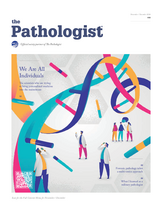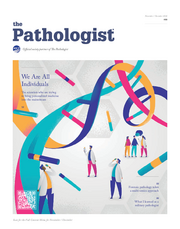The Lasting Legacy of SARS-CoV-2
As the list of long-COVID symptoms continues to grow, should we all be taking this disease more seriously?

Four years on from the start of the COVID-19 pandemic, SARS-CoV-2 continues to plague individuals across the globe. In 2021, researchers identified over 200 symptoms of long COVID (1), and the impact of the disease continues to spread, with around 65 million people estimated to have the condition (2). Today, the world still faces a lack of access to diagnostics and therapeutics for COVID-19 – especially in low- and middle-income countries. And though many Western countries seem to be “continuing as normal,” going about life without masks and social distancing, should we be taking more precautions?
Long COVID is often characterized by extreme fatigue, shortness of breath, and dizziness, but as time progresses, researchers are identifying more obscure effects in patients. Researchers of a study published in 2022 identified secondary osteonecrosis of the knee caused by prolonged effects of COVID-19 infection in some patients (3); however, this could arguably be related to steroid therapy during hospitalization.
With so many varying symptoms, diagnosis of long COVID remains challenging. Currently, clinicians take a mixed approach: asking patients about their health history, performing physical examinations, and ordering further bloodwork, if necessary. But another hurdle is a lack of understanding – both from the general public and medical professionals – with regards to the seriousness and wide-ranging symptoms of long COVID. And if a patient doesn’t show a specific abnormality, they may not receive the necessary medical attention and support.
“There's a proportion of people who have difficulty accepting long COVID because the science hasn’t caught up with it,” says pulmonologist Denyse Lutchmansingh in an article with Yale Medicine (4). And this might seem understandable when we consider the huge variety of symptoms presented.
Should we be investing more in long COVID research? Or should priorities now lie elsewhere? Join the debate by dropping us an email: [email protected]
- HE Davies et al., eClinicalMedicine, 38 (2021). PMID: 34308300.
- HE Davies et al., Nat Rev Microbiol, 21 (2023). PMID: 36639608.
- SR Agarwala et al., BMJ Case Rep, 15, 3 (2022). PMID: 35351759.
- Yale Medicine, “What Happens When You Still Have Long COVID Symptoms?” (2023). Available at: https://www.yalemedicine.org/news/long-covid-symptoms
Deputy Editor, The Pathologist




















